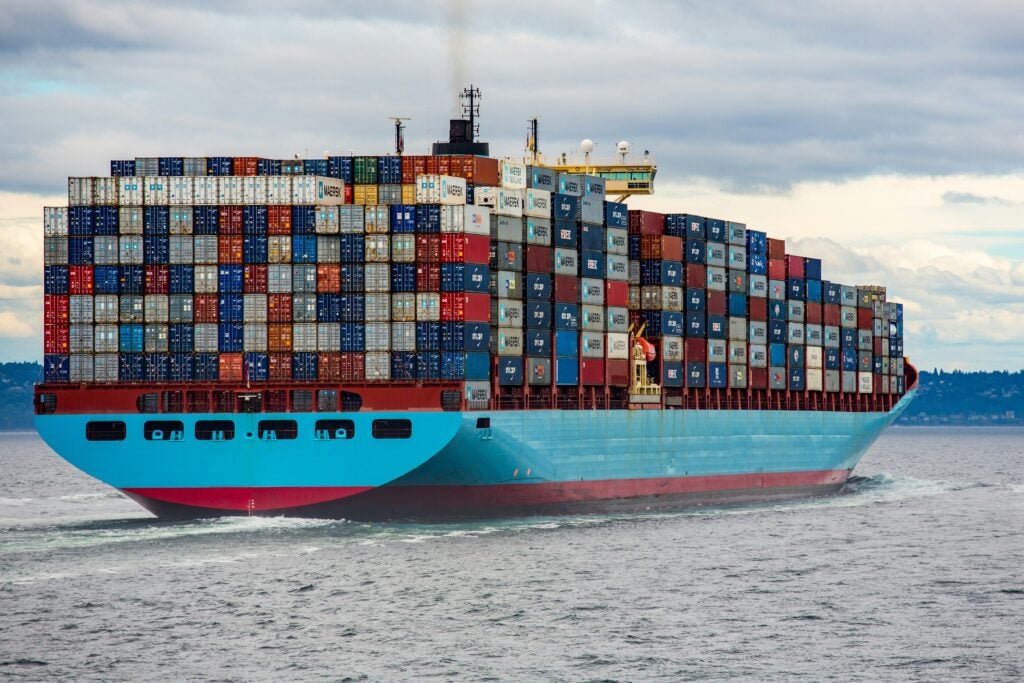Charting the course for a cleaner future for shipping: Getting a legally binding price on carbon right for a just energy transition
March 31, 2025
By Angie Farrag-Thibault and Natacha Stamatiou
A version of this blog ran as an op-ed in Bunkerspot.
The global shipping sector is grappling with ensuring fair, equitable outcomes as it transitions to a more sustainable future in the face of climate change. To reach a goal of net-zero emissions by 2050 and reduce pollution from the sector, Member States at the International Maritime Organization must now — at the 83rd Meeting of the Marine Environment Protection Committee — collectively agree on the parameters of a legally binding price on carbon and other greenhouse gases, as well as a global fuel standard. These measures can incentivize cleaner shipping practices and generate billions of U.S. dollars annually to support the sector’s decarbonization to mitigate climate-related consequences for shipping communities globally.
A powerful tool
Carbon pricing is a proven, practical and scalable tool that would incentivize ship owners and operators to adopt cleaner practices and reduce their reliance on fossil fuels. By making zero and near-zero emission fuels and technologies more cost-competitive, enforcing this across the sector would become a powerful financial driver for reducing greenhouse gas emissions worldwide.
Charting the course for a cleaner future for shipping: Getting a legally binding price on carbon right for a just energy transition Share on X
This financial measure is also a catalyst for innovation. If adopted, it will generate revenue for the clean technologies, green port infrastructure and sustainable fuel production needed to achieve net-zero emissions, as well as for building resilience in climate-vulnerable communities.
Leveraging existing climate finance structures is essential for efficiency and equity
The real success of carbon pricing hinges not only on its decarbonization potential, but also its capacity to appropriately manage its revenues. To deliver on the IMO’s commitment to a just and equitable transition, the IMO should align this effort with existing, established international climate finance structures that already have the experience, infrastructure and governance frameworks needed to ensure that resources reach the regions and communities that need them most. Funds like the Green Climate Fund — designed to strengthen the institutional capacities of small island nations, least developed countries and African countries — and the Adaptation Fund, which supports vulnerable communities in developing countries adapt to climate change, demonstrate how targeted projects aligned with equitable objectives can benefit countries that bear the brunt of climate change impacts.
While the IMO establishes its Net Zero Fund (current draft name), there is an opportunity to design a hybrid approach that would enable the UN body and its Member States to retain strategic oversight of revenue allocation, while entrusting a portion of the funds through existing channels, thereby leveraging their proven governance structures and operational expertise. This collaborative framework could streamline implementation, avoid duplication and enable the IMO to deliver on its decarbonization and equity commitments at speed and scale, while maintaining its focus on practical and timely decarbonization efforts.
Equity and efficiency make a stronger system
Disbursing revenues towards justice and equity goals — such as capacity building and climate mitigation in climate-vulnerable regions — strengthens the global shipping sector and ensures the availability of essential services and infrastructure worldwide. Making sure that revenues generated from a price on carbon are reinvested strategically in the supply chain would create additional stability and a level playing field globally, while a steady revenue stream would create a predictable environment for businesses to plan long-term decarbonization strategies.
Revenues allocated to green port infrastructure and sustainable supply chains can directly support the industry’s profitability by enhancing operational efficiency and reducing future costs associated with climate risks. Adopting a zero-emission strategy for supply chains and energy systems both on and off port terminals is beneficial to the climate, surrounding communities’ health, and operators’ bottom lines.
Revenue disbursement is not just good policy, but good politics
The IMO has the power to boost the industry’s reputation by acting on a just and equitable decarbonization strategy that creates a thriving and sustainable maritime sector. Setting up a fair disbursement framework would demonstrate the IMO’s leadership and boost the industry’s credibility by positioning it as a leader in climate solutions. This approach could attract investors, customers and stakeholders who prioritize sustainability, while fostering trust and collaboration across the value chain.
The IMO’s collaboration with existing climate finance structures would exemplify the kind of multilateral effort required to tackle climate challenges the sector and member states face holistically. This synergy aligns with the United Nations’ Sustainable Development Goals, particularly SDG 16 and SDG 17, which promote accountability and partnership as well as broad international investment in climate resilience projects in developing nations.
A pivotal moment
The upcoming meetings at the IMO this April are a pivotal opportunity for Member States to decide how to best support an equitable and thriving future for shipping and the communities that are so tightly linked to the sector.
A legally binding price on carbon for shipping and a strong global fuel standard, when paired with the effective disbursement of revenues, has the potential to drive equitable and efficient change in the maritime sector, while generating significant investments in sustainable technologies and equitable climate resilience.
Angie Farrag-Thibault is Associate Vice President, Global Transportation at Environmental Defense Fund. Natacha Stamatiou is the IMO GHG and delegation lead in the Global Shipping team at Environmental Defense Fund. They will both be attending the upcoming IMO negotiations in London – Monday, March 31 through Friday, April 11.
Related Posts
Search
RECENT PRESS RELEASES
Related Post




